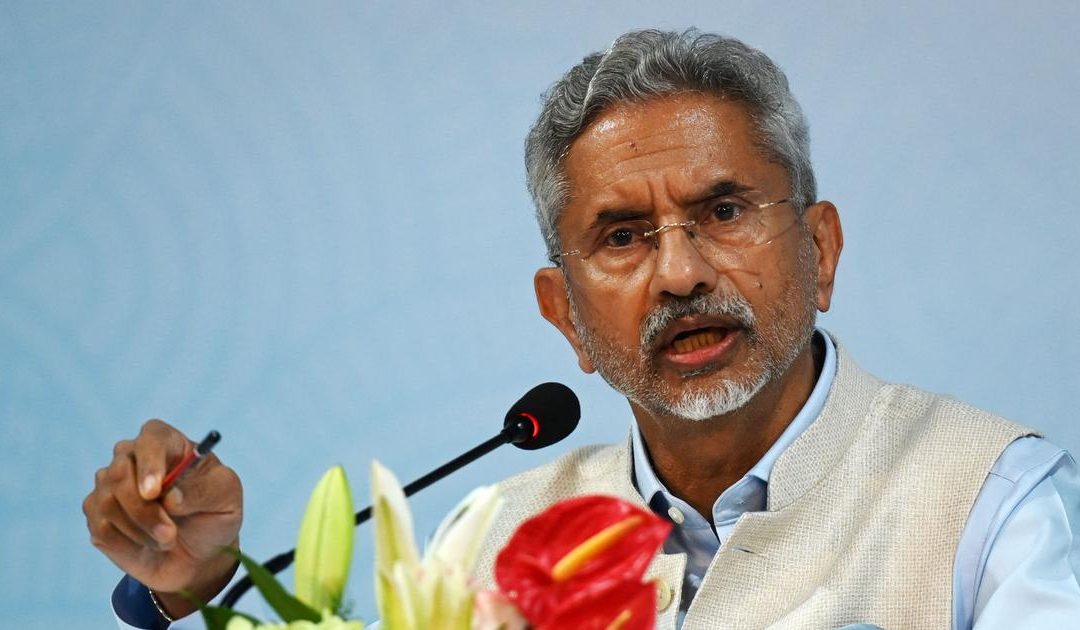India has expressed deep concern over the ongoing violence and instability in Bangladesh, especially regarding the safety of minority communities and Indian nationals. The government has established contact with the new administration in Dhaka following the fall of Sheikh Hasina’s regime, as informed in Parliament on Tuesday.
External Affairs Minister S. Jaishankar, in suo motu statements in both the Rajya Sabha and Lok Sabha, reported that former Premier Sheikh Hasina decided to step down after consulting with security leaders on Monday. She sought temporary refuge in India.
This marked the first official statement from the Indian government on the unfolding situation in Bangladesh. Army chief General Waker-uz-Zaman has taken charge, announcing the formation of an interim government. Meanwhile, Hasina’s Awami League government has dramatically collapsed.
Nobel Peace Prize laureate Muhammad Yunus expressed his readiness to lead an interim government following demands from student leaders of the protests. However, there has been no official response from the military regarding this proposal.
Jaishankar detailed the events leading to Hasina’s resignation after weeks of violent protests. He highlighted India’s continuous calls for restraint and dialogue to defuse the situation.
The Indian government remains particularly concerned about the safety of Bangladesh’s minority communities amid reports of attacks on their businesses and temples. Jaishankar welcomed initiatives by various groups to protect minorities but emphasized that India’s concerns would persist until law and order are visibly restored.
Uncertainty surrounds Hasina’s reported plans to travel to the UK, with the British authorities indicating that asylum should be claimed in the first safe country reached. Sources indicated that Hasina had been moved from Hindon Airbase, where she landed on Monday, to an undisclosed safe location.
In an all-party meeting, Jaishankar assured MPs that Hasina, considered a friend of India, would be allowed to stay in the country until she finalizes her travel plans. Home Minister Amit Shah, Defence Minister Rajnath Singh, and Jaishankar briefed the participants on the situation.
Opposition leader Rahul Gandhi inquired about Hasina’s plans and possible foreign influences, particularly from China. Jaishankar confirmed that India is ready to assist Hasina and monitor the situation closely, noting Pakistani diplomats’ social media support for the uprising.
The Indian government has directed border forces to remain exceptionally vigilant and is maintaining regular contact with Bangladeshi authorities. Jaishankar emphasized that India’s priority is the safety of Indian nationals and minority communities in Bangladesh, along with maintaining border security.
Despite the quota in government jobs being struck down by Bangladesh’s Supreme Court, the student-led protests persisted, eventually demanding Hasina’s resignation. India’s consistent advice for restraint and dialogue was reiterated throughout the unrest. “At short notice, she requested approval to travel to India and arrived in Delhi yesterday evening. Meanwhile, we also received a flight clearance request from the Bangladeshi authorities.”
In response to the complex situation, India’s border forces have been instructed to be exceptionally vigilant. New Delhi is in constant communication with Dhaka, and efforts have been made to support the restoration of normalcy in Bangladesh.
India has reached out to Bangladeshi military officials, including the army chief, to offer support in restoring order. Jaishankar further elaborated, “We are closely monitoring the situation concerning Bangladesh’s minority communities, who have faced attacks on their businesses and temples. While we welcome efforts to protect these communities, we remain concerned until law and order are fully restored.”
He further stated that Bangladesh’s political landscape has been marked by significant tension and polarization since the January election, which exacerbated the recent student agitation and subsequent violence.
The unrest, which began in June due to student protests over a controversial quota in government jobs, escalated with attacks on public buildings, infrastructure, and disruptions to traffic and rail services. Although the quota was struck down by Bangladesh’s Supreme Court on July 21, subsequent actions by Prime Minister Sheikh Hasina’s government only intensified the situation. The protests eventually focused on a demand for Hasina’s resignation.
The Indian community in Bangladesh, estimated at 19,000 including about 9,000 students, remains a key concern. Most students returned to India in July. India expects Bangladeshi authorities to ensure the security of its diplomatic missions across the country.
India expects the Bangladeshi authorities to ensure the security of its high commission in Dhaka and its assistant high commissions in Chittagong, Rajshahi, Khulna, and Sylhet.






